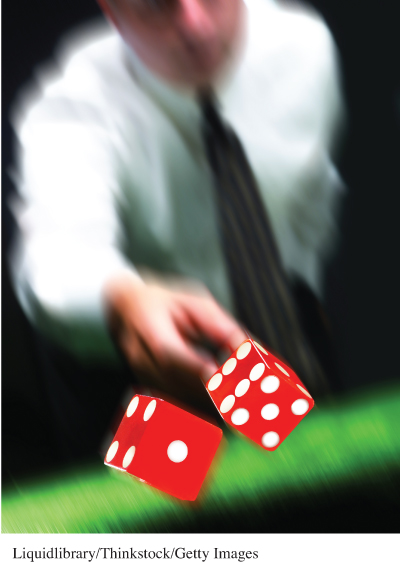PART III

403
Chance
"If chance will have me king, why, chance will crown me.” So said Macbeth in Shakespeare’s great play. Chance does indeed play with us all, and we can do little to understand or manage it. Sometimes, however, chance is tamed. A roll of dice, a simple random sample, even the inheritance of eye color or blood type—all represent chance tied down so that we can understand and manage it. Unlike Macbeth’s life or ours, we can roll the dice again. And again, and again. The outcomes are governed by chance, but in many repetitions a pattern emerges. Chance is no longer mysterious, because we can describe its pattern.
We humans use mathematics to describe regular patterns, whether the circles and triangles of geometry or the movements of the planets. We use mathematics to understand the regular patterns of chance behavior when chance is tamed in a setting where we can repeat the same chance phenomenon again and again. The mathematics of chance is called probability. Probability is the topic of this part of the book, though we will go light on the math in favor of experimenting and thinking.